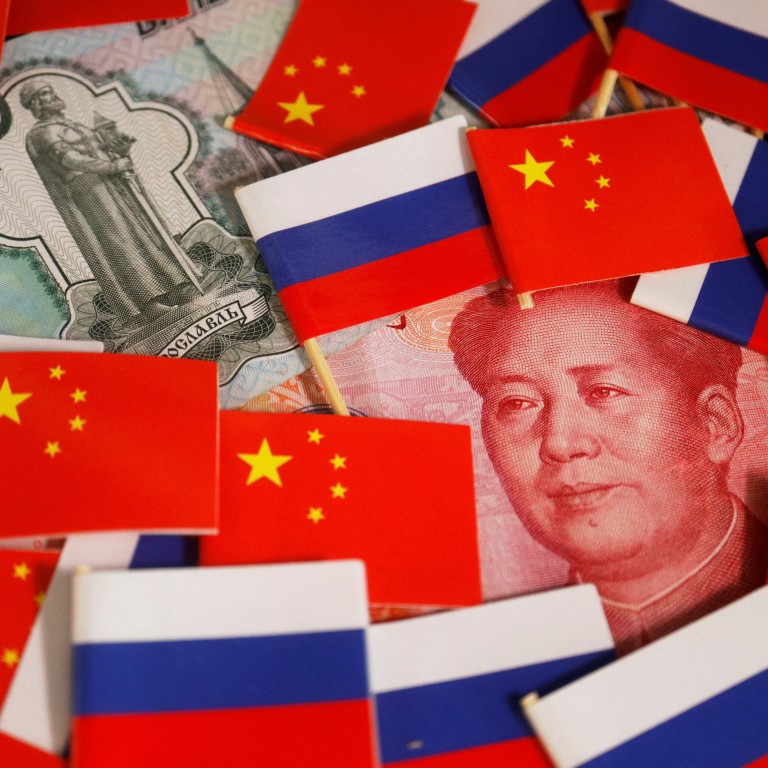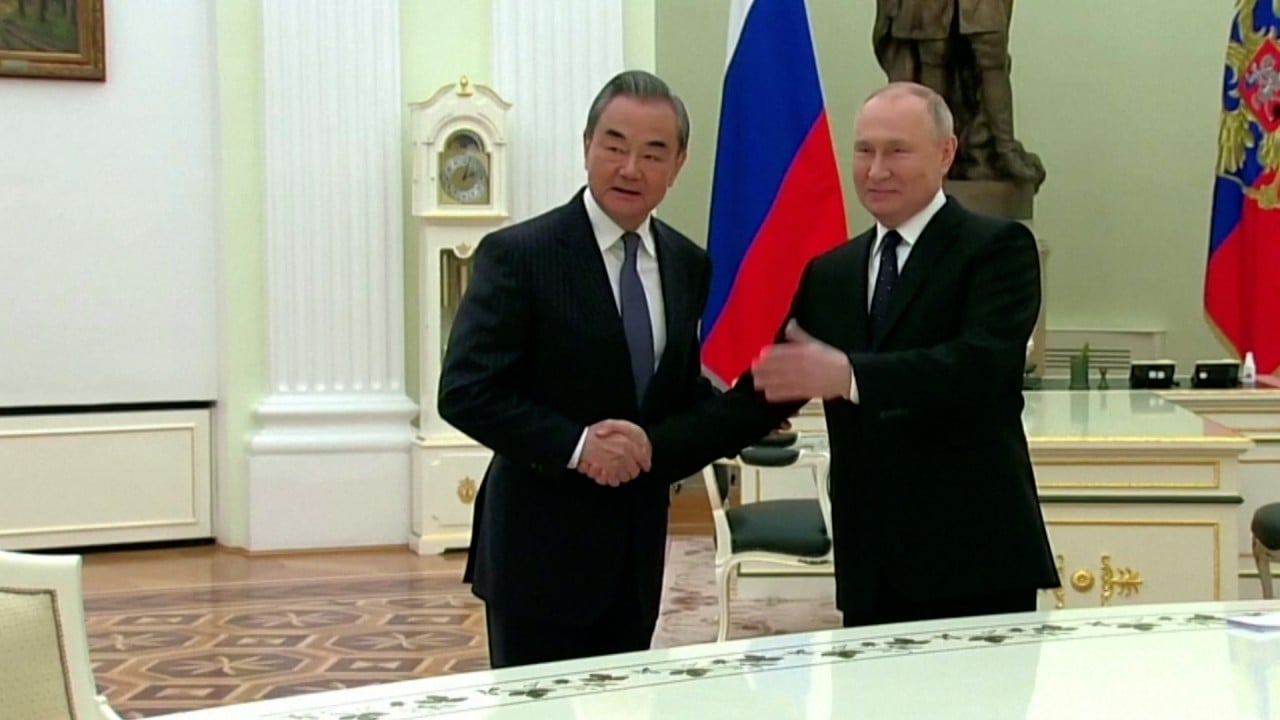
China hints at more ‘safe and credible’ currency cooperation with Russia
- Foreign Minister Qin Gang hails relations with Moscow, blasts ‘invisible hand’ escalating Ukraine conflict
- Russia’s use of yuan increasing ‘dramatically’ since Western sanctions were imposed, analyst says
China signalled more currency cooperation with Russia and applauded its exemplary relations with Moscow on Tuesday, as it accused the United States of escalating the war in Ukraine.
China to set up super financial oversight body to tackle ‘long-standing’ risk
“[We will use] whatever currency is easy to use ... International currency should not be used as a trump card for unilateral sanctions, and as a tool for bullying and coercion,” Qin said in an apparent reference to US-led sanctions against Russia over its invasion of Ukraine.
He did not confirm if President Xi Jinping would visit Russia after the two sessions, but reaffirmed the strength of China-Russia relations under the leadership of the two nations’ presidents.
Xi Jinping accuses US of leading West to suppress China’s development
“Some countries are used to viewing China-Russia relations through the lens of the ‘cold war alliance’, and what they see is their own reflection,” he said.
“China-Russia relations are based on non-alignment, non-confrontation, and non-targeting of any third party. They neither pose a threat to any country in the world nor are they subject to interference or provocation by any third party.”
Qin made several references to the Ukraine crisis throughout the press conference. He insisted that China had not provided weapons to any party in the conflict and repeated Beijing’s peace proposal for Ukraine, while condemning forces that he said had damaged the peace process.
China has been criticised repeatedly for refusing to condemn Russia’s invasion of Ukraine as Beijing provides economic support to Moscow through gas and oil purchases.
The US and Nato have also suggested that China may be considering supplying lethal aid to Russia, a claim Beijing has strongly denied.
As Western sanctions target Russia’s energy industry and financial systems, Moscow has welcomed expanded business ties with China, which is seeking to make the yuan a viable alternative to the US dollar.
China-Russia trade hit a record US$190.27 billion in 2022, an increase of about 30 per cent compared to 2021. Russian Foreign Minister Sergey Lavrov said in January that around half of their trade was paid in either roubles or yuan, and that portion was increasing.
In February, China’s yuan overtook the US dollar for the first time to become the most traded currency in Russia’s stock market, according to Russian media.
Bert Hofman, director of the East Asian Institute at the National University of Singapore, said payments in yuan accepted by Russia for its exports to China increased from 0.4 per cent before the invasion of Ukraine to 14 per cent by the end of the third quarter of 2022.
Other measures, such as the share of Russia’s foreign currency reserves or the proportion of assets of its sovereign wealth fund that are held in yuan, are also “rising very rapidly”.
“Russia’s use of the [yuan] has already increased dramatically since sanctions were imposed on it after its invasion of Ukraine. As long as sanctions remain in place, Russia’s dependence on the [yuan] will continue to increase,” Hofman said.
Victor Gao, vice-president of the Beijing-based Centre for China and Globalisation, said Qin’s currency suggestion for China-Russia trade was “very reasonable” as China was pushing to internationalise the yuan.
“China and Russia’s trade can be promoted within the large framework of the [yuan’s internationalisation],” he said.
“China is already the largest trading partner of more than 130 countries and regions. If we continue to use foreign currency for settlement of China’s deals with these countries ... it’s actually unreasonable and it’s against the laws of the market.”
Gao said China was committed to continuing to work for peace in Ukraine.
“Since China has put forward a peace initiative, it must talk to Russia and also talk to Ukraine, directly or indirectly,” he said.

 - Kawala Xie.jpg?itok=NogZcyZ-&v=1661304068)
